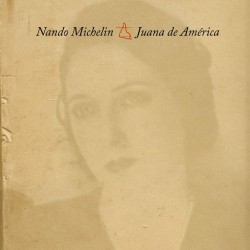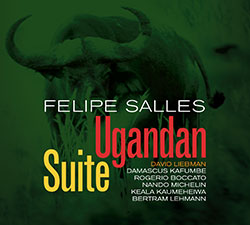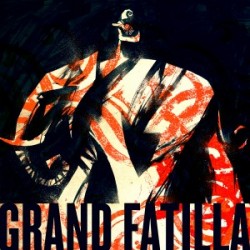The Annual Arts Fuse Holiday Gift Roundup — Tips From Enthusiasts
[Updated] Wondering about what to give the arts and culture lover on your gift list? No problem—the sage writers for The Arts Fuse (with an assist from our readers) come to the rescue with thoughtful suggestions.

With gift season comes the existential quandary: What to give the culture lovers on your list? This season the writers for The Arts Fuse help fend off the crisis by recommending items that will delight the heart and stimulate the mind. Please feel free to add your own suggestions in the comments section.
This page will be updated as more selections come in . . . .
Happy Holidays,
Bill Marx, Editor
The Arts Fuse
The big dance book of the year is Misty “I intend to be the first black principal dancer at American Ballet Theatre” Copeland’s Life In Motion, but Michaela DePrince’s Taking Flight: From War Orphan to Star Ballerina deserves a place on the shelf of any young dancer — or frankly, any young person of color — who aspires against the odds.
I was delighted with the new Dance & Fashion edited by Valerie Steele. While all the essays aren’t equally distinguished, the book reflects scholarly seriousness, offers fascinating detail, and is illustrated with unfamiliar photographs including a priceless one of Martha Graham sewing up the waistband of Eric Hawkins’ trousers.
For dancing tots, the jewels of the last few years include the Matisse Dance for Joy Board Book and The Pilobolus Human Alphabet.
Keep the floor dry and those equally married guys you know laughing with a dancing policeman shower curtain. An African dance or music aficionado would be grateful for a djembe whose purchase directly supports the artisans.
The ballroom dancer or tanguero on your list may like a reproduction of a vintage poster or enjoy the graphic dazzle in Gotta Dance!, the catalog for Mike Kaplan’s collection of European posters on display at Jacob’s Pillow this past summer.
The bronze edition of Degas’s 14-year-old dancer wearing her tulle tutu and silk ribbon is staged in a new niche, beautifully positioned in Tadao Ando’s gorgeous new Clark Art Institute in Williamstown. But while supplies last, the miniaturized necklace version from the Museum of Fine Arts is on holiday sale.
And for the people on your list who wish they could live in the theatre full time, there are Playbill pajamas in both male and female editions. Dream on.
— Debra Cash
For theater–lovers on stay-at-home winter evenings:
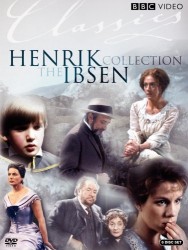
BBC Video’s Henrik Ibsen Collection (Hedda Gabler, Ghosts, The Wild Duck, The Master Builder …) Set of 6 DVDs. $33.99 on Amazon.com
For those interested in seeing Ibsen’s too infrequently produced plays, this collection is a real find. The volumes include BBC television adaptations of Ibsen’s major work and an additional seven in radio versions. There’s also A Meeting in Rome, a play about Ibsen’s relationship with Swedish playwright August Strindberg. Some of these productions date from the ’60s and ’70s and their sound quality is uneven, but the actors, adaptors, and directors are excellent and production values high. Ingrid Bergman stars in Hedda Gabler along with Michael Redgrave and Ralph Richardson. Juliet Stevenson stars in A Doll’s House; Anthony Hopkins and Diana Rigg in Little Eyolf; Judi Dench, Michael Gambon, and Kenneth Branagh in Ghosts. At a time of budget-cutting and dumbing-down in live theater, this collection offers a convenient way to view the dazzling scope of Ibsen’s prescient and enduring work.
For those interested in American writer Edith Wharton, there is a Edith Wharton — A Sense of Harmony, a fascinating but obscure documentary completed 15 years ago. When Elizabeth Lennard’s 1999 film about Edith Wharton’s life and work was first released, it was neither widely distributed nor seen. I watched it in the former stables of The Mount where it was chosen as part of the Ninth Annual Berkshire International Film Festival that runs in late spring in Pittsfield and Great Barrington. Lennard has managed to evoke the breadth of Wharton’s life and work in a relatively short and vivid film.
Holiday Gifts from Plunkett Lake Press:
Quick and easy-to-mail e-books for your reader friends and family members include memoirs such as Eva Hoffman’s Lost in Translation and biographies of Ben Shahn to Balzac (http://plunkettlakepress.com/b.html) and Freud by Stefan Zweig. Over 80 PLP titles so reasonably priced that you can choose several for Christmas and a different one for each night of Chanukah! For a complete list of titles, visit the Plunkett Lake Press catalogue.
–Happy Holidays, from Helen Epstein
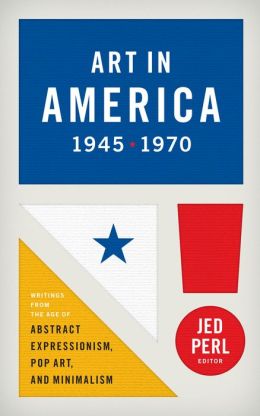
Jed Perl’s erudition is such that it outclasses the sophistication of most contemporary art and its surrounding shenanigans. If Ai Weiwei was making a statement with his exhibition at the Perez Art Museum of Miami earlier this year, and Maximo Caminero was making a statement by smashing a component of one of the works in said exhibition, Perl’s literal statement about the matter was more interesting than both of them. “I find something weirdly fascinating about the entire affair. Is anybody surprised that such things can happen when Neo-Dadaism becomes canonical and the self-appointed rule breakers rule?”
Thus Perl is obliged to look back a bit for the sake of finding something substantial to chew on. He is at work on the first full-length biography of Alexander Calder, but in the meantime a flurry of activity has issued from his writing desk. Firstly, Library of America has published Art in America 1945–1970: Writings from the Age of Abstract Expressionism, Pop Art, and Minimalism under his able editorship. Over the course of 800 pages, Perl captures what in the introduction he calls the “mongrel energy” of the art writing of the period. He includes the “bergs,” Greenberg, Rosenberg, and Steinberg, and similar figures from the critic-philosopher wing of art writing like Rosalind Krauss, Susan Sontag, and Michael Fried.
But no less represented are the artists themselves, with statements from Barnett Newman, Hans Hofmann, Mark Tobey, Philip Guston, and several others. Literary types figure prominently as well, with a poem by Howard Nemerov about a sculpture by David Smith, Randall Jarrell’s complaint about abstract expressionism, and Kenneth Rexroth’s approbation of Morris Graves. (This last example gives you a sense of how curt the language of the age of the Internet has become. Here’s a sentence for you: “Except for the emphasis on deep complex space and calligraphic skill which he learned from Tobey, but which he could just as well have learned from the Far Eastern paintings in the Seattle Museum, Graves’s style, or styles, his special mode of seeing reality and his techniques of handling it, have come, like the spider’s web, out of himself, or, at the most, out of the general cultural ambiance of a world civilization, syncretic of all time and space.”) The read alternates between stern and delightful and one emerges from it exposed to an enormous richness and variety of thought.
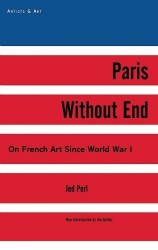
This year also saw the 25th-anniversary reissue of Perl’s Paris Without End: On French Art Since World War I by Arcade Publishing. The book “was conceived as a love letter,” as he writes in a new introduction, and in it he extols the seminal actors of figurative modernism (Matisse, Picasso, Derain, Léger, Dufy, Braque, Giacometti, Balthus, and Hélion) with an aplomb that showed up early in his prose and never left him. Arcade also recently published Double Rhythm: Writings About Painting by Hélion. The editor is Deborah Rosenthal, who in addition to being an accomplished critic and artist, is Perl’s wife. Conversations around the breakfast table chez Perl must be marvelous.
It’s not as recent but I lastly direct your attention to the wonderful Antoine’s Alphabet: Watteau and His World, an extended meditation on the short life, prodigious works, and fascinating milieu of the Rococo master, organized alphabetically. Here we see Perl in a playful mode, yet the result is as touching as his straightforward pieces. When someone compiles the art writings of our own time, Perl will likely supply some of the collection’s brighter gems.
— Franklin Einspruch
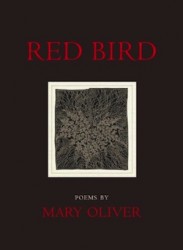
Give the gift of poetry this season, in particular the verse of two very different, but inspiring, Massachusetts poets, Mary Oliver of Provincetown and Louise Glück of Cambridge.
Each offers indispensable occasions for contemplation during long wintry nights.
Oliver comes from the school of American romanticism that embraces the natural world as a way of freeing and healing the spirit. In several of her poems, she takes us to a mysterious pond in the Outer Cape to share her discoveries:
What I want to say is
the past is the past,
and the present is what your life is,
and you are capable
of choosing what that will be,
darling citizen.
–“Mornings at Blackwater”
Glück speaks of a spirit in search of repair, as if she has returned from a long journey to admonish us with haunting, foreboding images:
I have been in my other lives
too hasty, too eager,
my haste a source of pain in the world.
Swaggering as a tyrant swaggers,
for all my amorousness,
cold at heart, in the manner of the superficial.
— “The New Life”
You can find these poems (and many others) in these books: Poems 1962-2012 by Glück (Farrar, Straus, and Giroux) and Red Bird by Oliver (Beacon Press). Both of these volumes are available at the Grolier Poetry Book Shop in Cambridge, MA.
Yes, Virginia, there is a Santa Claus. He sets his sleigh down on the rooftop of Symphony Hall in Boston throughout December and scuttles down the chimney for onstage appearances alongside conductor Keith Lockhart and the Tanglewood Festival Chorus during select performances of Holiday Pops.
While I look forward to Santa’s corny banter with Lockhart each year, there is yet another compelling reason to seek out Holiday Pops concerts: Richard “Gus” Sebring’s composition Veni, Veni Emmanuel, a musical meditation, accompanied by his own video footage, that takes us into the heart of Massachusetts’ winter landscape. Sebring was inspired five years ago to create a previous piece for the Pops while cross-country skiing at the Great Meadows National Wildlife Refuge, which sits at the confluence of the Sudbury, Assabet and Concord rivers. A native of Concord, Sebring is principal horn at the BSO and the Boston Pops. His latest composition (and images) succeeds at creating a vivid mood of wintry reverie.
— Robert Israel
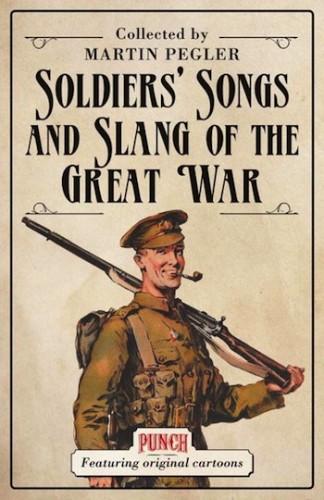
Soldiers’ Songs and Slang of the Great War (Osprey Publishing) looks invitingly old, but is brand new this Centennial year. The slang includes “gone trumpet cleaning” meaning dead and “Hand me that cumsah will you?” which comes from comme ça and is kin to ooja and wotsit. Have you wondered why Tipperary? “Simply because it sounded right” to Jack Judge as he wrote the song overnight to win a 5-shilling challenge. “That’s the Wrong Way to Tickle Mary” is one of many parodies Martin Pegler includes.
The trenches made writers of many, including the unknown authors of the much-sung “Do your balls hang high” and “Forward Joe Soap’s Army, marching without fear / With our old commander safely in the rear.” There are lots of color illustrations, cartoons from Punch, and pages from the Wipers Times – satire published for several years from the trenches of Ypres. Appendices include phonetic alphabets from 1914 (Beer was for B) and 1918 (then Butter was), British Military Units and Honors, and the Westminster Abbey headstone inscription for the Unknown Warrior.
Publisher and poet Mary Meriam has been busy this year. Her anthology Irresistible Sonnets collects the poems of 71 poets from many parts of the contemporary poetry world. Also this year from her one-woman Headmistress Press comes Girlie Calendar, a collection of her own touching poems. Meriam writes in forms recognizable and of her own making. Naturally, she provides correctives to the more usual monthly captions in girlie calendars; these hints of poems, along with her taste in pin-up girls, have begun to appear at the blog for Ms. Magazine.

Kaz Hawkins — she is a mature writer and singer who has lately been winning awards in Europe.
Singer and songwriter, Kaz Hawkins is giving 3 concerts in Boston in December. She has rhythmic and melodic control that are put under pressure by her living within the songs; her restraint adds blues to her beauty of tone. When I heard her at Bill’s Bar, she had the confidence to reveal only bit by bit how much she can do. While she has learned from Etta James and her East Belfast neighbor, Van Morrison, Hawkins is a mature writer and singer who has lately been winning awards in Europe. If luck is kind, she should soon be widely known.
Get Ready, with her Band O’Men, is her first album; you can find it at iTunes, along with an EP and two singles, one of which is really a triplet. My preference is for her slower numbers and her up-tempo ones when they have a pull towards the minor, as does “Hallelujah Happy People.”
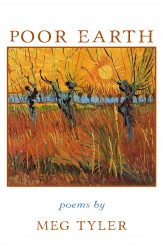
Meg Tyler, founder and chair of the Institute for the Study of Irish Culture at Boston University, is a champion of the poems of others. She doesn’t say much about her own work, so it will have to speak for itself. In her chapbook, Poor Earth (Finishing Line Press), Tyler knows what many writers don’t – how to let her poems end. The richness in her quiet work comes from a fine sense of what makes family, nature, loss, and love both ordinary and worth observing; she gives only that, and no more. One of the best.
— Marcia Karp
This year, let the tasteful folks at the Criterion Collection stuff the stockings of your discerning cinephile with updated, beautifully packaged editions of films old and new. Criterion released a number of interesting titles this year, available through Amazon, retail or at www.criterion.com.
Foreign Correspondent is Hitchcock’s first Hollywood film (made in 1940!) and one of the master’s often- overlooked gems. he affable Joel McCrea is a beleaguered American reporter sent across the pond in order to get the scoop on the brewing war. An elegantly made espionage adventure filled with delightfully wicked characters, Hitchcock’s trademark suspense, and beautifully re-mastered cinematography.
There aren’t many parts of pop culture Beatlemania didn’t change, but A Hard Day’s Night is the eye of the pop culture hurricane. It’s not just the songs, great as they still are, it’s also how the film not only pioneered the music video also inspired Reality TV. Criterion’s edition has plenty of clips of the fab four but also spotlights Richard Lester, the film’s innovative director. Arts Fuse Review
Y Tu Mama Tambien made quite a critical splash upon its release in 2001, with its charismatic stars (Gael Garcia Bernal and Diego Luna, as well as the lovely Maribel Verdu) and its refreshingly frank sexuality. Alfonso Cuaron re-invents the coming-of-age tale by providing new social, political and erotic insights as it captures both the thrill of being young and the poignancy of adulthood. This edition features making-of documentaries and a gloss from the radical philosopher Slavoj Zizek.
Before there was Twin Peaks, Blue Velvet, or Mulholland Drive, there was Eraserhead. After leaving art school, director David Lynch spent years putting together his debut, “a dream of dark and troubling things.” This Kafkaesque cult classic is now more effective than ever with a crisp new transfer, extensive making-of documentaries, and six early short films introduced by the filmmaker. It’s a perfect choice for Lynch fans who eagerly await the recently-announced new season of Twin Peaks. In heaven, everything is fine…
Persona is one of the most enigmatic masterpieces in Ingmar Bergman’s long and illustrious career. Bergman was famous for gazing into the darkest questions of existence, but in Persona created a visual poetics to find what he was looking for. Luckily for us, we have Criterion’s extensive three-disc edition of the landmark film, complete with a majestic new transfer, updated English subtitles, and several probing interviews with the director and the film’s two stars (or is it really one?).
— Matt Hanson
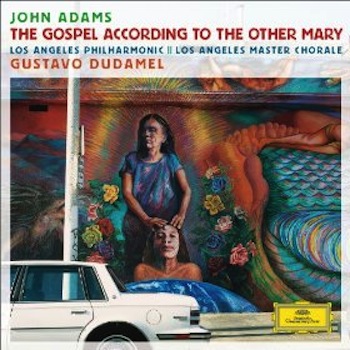
It’s been a good year for classical albums, and especially for composers named John Adams. John Coolidge Adams had a pair of premiere recordings: The Gospel According to the Other Mary, a breathtakingly ambitious Passion oratorio that sound like it could be by no other composer, yet also sounds like nothing else Adams has written; and the Saxophone Concerto (paired with his 2009 symphony, City Noir). Gospel features electrifying performances from the Los Angeles Philharmonic, L.A. Master Chorale, and a big roster of soloists, while the St. Louis Symphony and soloist Timothy McAllister more than deliver the goods in City Noir and the Concerto.
John Luther Adams won the Pulitzer Prize this year for his roiling, mesmeric, sometimes terrifying Become Ocean. The recording, by Ludovic Morlot and the Seattle Symphony, ably demonstrates 1) why this is one of the most exciting orchestra/conductor pairs on the scene today and 2) why you shouldn’t overlook the “other” John Adams.
Further evidence of the greatness of American West Coast orchestras is to be found in two releases from the San Francisco Symphony Orchestra and Michael Tilson Thomas. Their account of Leonard Bernstein’s West Side Story is brilliantly played and urgently sung. Similarly, Masterpieces in Miniature, a disc commemorating MTT’s twentieth season at the orchestra’s helm, demonstrates how being fresh and quirky can speak so well to both the mind and the heart.
Closer to home, Gil Rose’s Boston Modern Orchestra Project has had a very busy and artistically rewarding year. And their in-house label, BMOP/Sound, shows no signs of churning out top-rate recordings of important American music. My two favorite releases this year were of George Antheil’s Ballet Mécanique and A Jazz Symphony and Lou Harrison’s La Koro Sutro. The latter includes Gabriella Diaz’s luminous account of Harrison’s Suite for Violin and American Gamelan.
Another local favorite, John Harbison, was the focus of a new recording by the Camerata Pacifica. His String Trio is paired with the morose Four Songs of Solitude and the ingratiating collection of Songs America Loves to Sing.
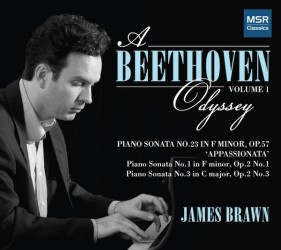
Among recordings of more standard fare, the first three volumes of James Brawn’s Beethoven Odyssey stand out. Considering the preponderance of Beethoven discs already out there, it’s usually tough to get excited about a new survey of the piano sonatas. But Brawn is anything by a run-of-the-mill musician and the first installations of his traversal of the canon shed new light on the familiar pillars (Pathétique and Appassionata, especially) while bringing out the charm and ingenuity of the lesser-known sonatas. You can’t miss with any of these (but there’s a particularly dynamic Les Adieux in volume 3, if you are looking for just one with which to start).
Also terrific is Pablo Heras-Casado’s new recording of Mendelssohn’s Lobgesang (Hymn of Praise) with the Chorus and Orchestra of the Bavarian Radio. The piece is a hybrid symphony-cantata that’s infrequently performed; Heras-Casado and his combined forces make as strong a case as any for its adoption into the mainstream.
For opera fans, Patrice Chéreau’s production of Richard Strauss’s Elektra, the last project he completed before his untimely death last fall, is out on DVD. Esa-Pekka Salonen conducts the Orchestre de Paris, Evelyn Herlitzius sings the title role, Adrianne Pieczonka portrays Chrysothemis, and Waltraud Meier is Clytemnestra.

Jan Swafford’s long-awaited Beethoven: Anguish and Triumph won’t disappoint those looking to do some reading over these cold months. As he’s already done for Charles Ives and Brahms, Swafford brings his deep musical insights and wisdom to this seemingly most familiar of composers, crafting a deeply human portrait in the process.
And, for any who appreciate the marriage of a sharp writing style with cutting wit, there is the newest installment to the Library of America series: the Virgil Thomson: Music Chronicles, 1940-54. Edited by Tim Page and covering a period of American history that was as rich, culturally, as it was tumultuous, this is a fascinating document of musical life in America as lived by one of the century’s most outspoken critics in any field.
— Jonathan Blumhofer
My advice this season — give the gift of criticism.
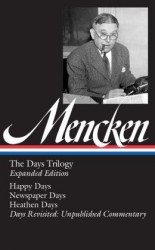
Jonathan Blumhofer’s choice of Virgil Thomson’s music criticism in the Library of America volume Music Chronicles, 1940-54 is excellent. I would also heartily suggest LOA’s The Days Trilogy, Expanded Edition (872 pages, $35), edited by Marion Elizabeth Rodgers, who also served as the editor of LOA’s two-volume set of H. L. Mencken’s Prejudices series. In Happy Days (1880-1892) (1940), Newspaper Days (1899-1906) (1941), and Heathen Days (1890-1936) (1943), Mencken comes off as a pungently mellow master, his trademark savagery smoothed over, its energy focused on generating a charmingly picturesque vision of the streets, sights, sounds, and routines of a vanished America. This is Mencken’s marvelous version of ‘remembrance of things past.’
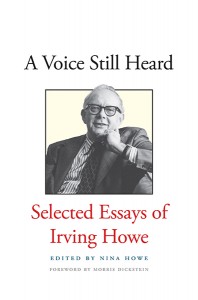
Irving Howe (1920-1993) was a very different critic than Mencken, though they both shared a strong polemical bent and an engaged sensibility that illuminated literature, society, and politics. Yale University Press has published A Voice Still Heard (380 pages, $40), a collection of Howe’s essays and reviews edited by Nina Howe. The range of Howe’s interests, from Jewish history and democratic socialism to the New York Intellectuals and major realist novelists are here, ample proof of the enduring value of his intelligence, independence, curiosity, and acute sense of justice. In a terrific essay on the American poet E.A. Robinson, Howe wrote: “He made doubt into a discipline, and failure into an opening toward compassion.”
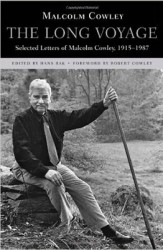
The Long Voyage: Selected Letters of Malcolm Cowley, 1915-1987 (Harvard University Press, 800 pages, $39.95). Editor Hans Bak has gathered together a collection of letters (roisterous, combative, tittle-tattling) from the New Republic literary critic and editor who knew just about everybody — from longtime good buddy Kenneth Burke and Edmund Wilson to Conrad Aiken (whom Cowley defends from the slings and arrows of Randall Jarrell’s criticism), Ernest Hemingway, and Jack Kerouac. Gerald Howard put the book’s merits well in Bookforum: “These missives convey the intense passions aroused by the aesthetic and political upheavals of the 20th century through the pen of one of the era’s leading literary intellectuals.” These debates (including over Cowley’s flirtation with Stalinism) have plenty of relevance. Here is Cowley writing in 1941 to Archibald MacLeish: “What I find writers lacking today is not the ability to create new faith, which I don’t think they ever had, but the ability to see and imaginatively recreate the vast changes that are occurring before our eyes.”
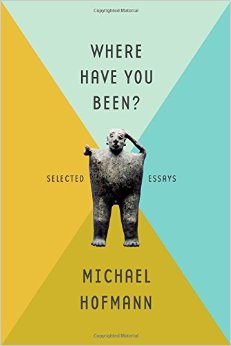
Where Have You Been?: Selected Essays by Michael Hofmann (Farrar, Straus and Giroux, 285 pages, $35). 30 provocative essays and reviews from poet, translator, and critic Hofmann, many on poets, including Robert Lowell, Ted Hughes, Les Murray, and Adam Jagajewski. He can be incisively admiring, as in his perceptive takes on John Berryman, Robert Walser, Thomas Bernhard, and Elizabeth Bishop. But Hofmann can also be savage, as in his assault on sub-standard translations into English of the Polish poet Zbigniew Herbert. “Alissa Valles’s Herbert is slack, chattersome, hysterical, full of exaggeration, complacency, and reaching for effect. The original (I’m quite sure) is none of those things.” His 2010 dismissal of the writing of Stefan Zweig — “He’s the Pepsi of Austrian writing” — generated plenty of literary kick-back.
— Bill Marx
Beginning in the 1940s, Duke Ellington and Billy Strayhorn pioneered the jazz suite as a way to bring together sets of contrasting but related compositions, the greatest of them probably being the Far East Suite and the Shakespearian suite Such Sweet Thunder. Over the years since, many jazz composers have followed in their footsteps, right up to the past year, which saw the release of Wadada Leo Smith’s Great Lakes Suite (see Michael Ullman’s review for the Arts Fuse) and two exemplary CDs by Massachusetts-based artists that should surprise and please the jazz enthusiast in your life.
Improbably, the first of these is based on writings of a poet little known (and less translated) outside of her native Uruguay, has liner notes entirely in Spanish, was funded and self-released via a Kickstarter campaign–and may well be the most beautiful recording you will hear this year. Juana de América is the honorific bestowed upon poet Juana de Ibarbourou (1892-1979) by her countrymen, and is also the title of a suite of settings of her poems (with similarly inspired instrumental interludes) by composer/pianist Nando Michelin.
Scored for voice, jazz piano trio, and string quartet, Juana de América traces in her own words the arc of the author’s life from the exuberant sensuality of her early poems to the darkness of the domestic abuse and morphine addiction that shadowed her later works–and does so in settings so expressive (and so expressively rendered by Argentinian vocalist Katie Viqueira) that the emotional journey transcends the potential language barrier. Of special note is the complete, transparent, and acoustically balanced integration of the Four Corners String Quartet (violinists Layth Sidiq and Ellen Story, violist Alliz Nicholas, and cellist Naseem Alatrash) with the traditional jazz trio (Michelin on piano, Robert Taylor on bass, and Michelin’s son Tiago on drums).
I had the good fortune to hear this music in live performance at Ryles, but could equally envision it in a classical concert space like Tanglewood or an acoustic music venue like Club Passim. Put another way, Juana de América should be as much a welcome gift for a lover of chamber music (especially if they’re fond of composers like Osvaldo Golijov) or a devotee of Iberian and Latin American folk music as for a mainstream jazz fan. Full-length samples of the recording can be heard on Bandcamp, and the CD is also available via CDBaby, iTunes, and Amazon.
Michelin also plays an important role in a second outstanding jazz suite from 2014, Brazilian-born saxophonist Felipe Salles’s Ugandan Suite. Compared with the music of nearby Ethiopia and of West African powerhouses like Nigeria, Ghana, Senegal, and Mali, the music of Uganda is terra incognita for most Americans (myself included). Drawing on his research during an extended visit to Uganda in 2011, and bolstered by the knowledge and active participation of Ugandan ethnomusicologist and Middlebury College professor Damascus Kafumbe, Salles (no stranger to the suite form–check out his earlier South American Suite) has created a powerful and evocative set of five extended movements built around largely traditional Ugandan rhythms and melodies and named after five magnificent (and endangered) animals (“The Buffalo,” “The Elephant,” “The Leopard,” “The Rhinoceros,” and “The Lion”) he encountered in Uganda.
Central to this music is the rhythmic web woven by Kafumbe, percussionist Rogerio Boccato, and drummer Bertram Lehmann, ably supported by pianist Michelin and bassist Keala Kaumeheiwa. Atop this intricate activity, the saxophones (and flute and bass clarinet) of Salles are paired dramatically with those of the formidable and incomparable David Liebman. This is music that is potent without being ponderous, and equally filled with delight and awe; lovers of jazz and of African music should feel the same way when presented with the Ugandan Suite as a holiday gift. Released by Tapestry Records, the CD is available from CDBaby, iTunes, and Amazon; an excerpt from “The Leopard” can be heard here.
If the Ugandan Suite’s inspirations span the Atlantic, the inaugural release by Grand Fatilla, Global Shuffle, reaches even further, around the Mediterranean and into the Middle East and South Asia. Anchored by Boston-area bassist and world music stalwart Mike Rivard (of Natraj and Club d’Elf renown), Grand Fatilla brings together the musical traditions (and compositions) of Italian accordionist Roberto Cassan, Italian percussionist/vocalist Fabio Pirozzolo (both also members of the ensemble Newpoli), and Canadian mandolinist Matt Glover, along with contributions on three tracks by Argentinian-born guitarist Claudio Ragazzi.
Grand Fatilla’s giddy virtuosity is very much to the fore as they navigate, with seeming effortlessness, the most hair-raising of complex meters and cross-rhythms. Yet they also have a more intimate side, exemplified by Cassan’s lovely tribute to his daughter, “Milonga para Lucia,” touching and filled with paternal tenderness. As a bonus, they’ve also included Hermeto Pascoal’s “Little Church,” a puzzling oddity in Miles Davis’s discography that here serves as an ethereal denouement.
Also a Kickstarter-funded self-release, Global Shuffle is available from the the Grand Fatilla website and also via CDBaby, iTunes, and Amazon. (Check out some sample tracks here.) Give your lover of world music Global Shuffle, and Grand Fatilla will keep their toe tapping–even if it’s in 22/16.
— J. R. Carroll
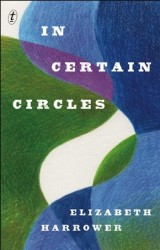
Not many novels from 2014 stick in the mind, but three that do, and that I was lucky enough to review for Arts Fuse are 1) In Certain Circles by the Australian writer Elizabeth Harrower, who is now 86 and has recently resurfaced on the literary scene. It is a stunning book about class and love, beautifully written and conceived, and at times has the intimacy of a play.
2) The Replacement Life, the debut novel by the young, very talented Boris Fishman, whose wit and insight as he explores a variation on the Russian immigrant experience makes for a funny, absurd, and, in the end, poignantly memorable book.
3) Eve Harris’s The Marrying of Chani Kaufman is an even-handed, empathetic look at London’s Orthodox Jews as they try to maneuver between the world of their religion and the secular world in which they must live.
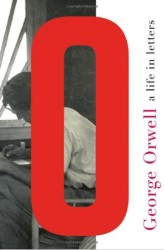
Memoirs and biographies (and quasi-biographies) were terrific reading this year Among them were George Orwell, A Life in Letters, the closest thing we have to an autobiography of one of the most important figures of the 20th century, and Havel, A Life by Michael Zantovsky, friend and colleague of a figure whose amazing vision lasted into the 21st century. It is written with the sympathy and knowledge that only a confidant and colleague can bring to such a work. I also loved a book I didn’t review, Gary Shteyngart’s Little Failure. The writer’s honesty and humor coalesce here in ways that they never have in his novels. And for those of you who have been intending to read Stefan Zweig’s The World of Yesterday after seeing the film The Grand Budapest Hotel, I urge you to do so immediately. It is even more relevant at the end of 2014 than it was at the beginning.
Happy reading!
— Roberta Silman
Tagged: Bill-Marx, Debra Cash, Franklin Einspruch, Helen Epstein, Marcia Karp, Matt Hanson

